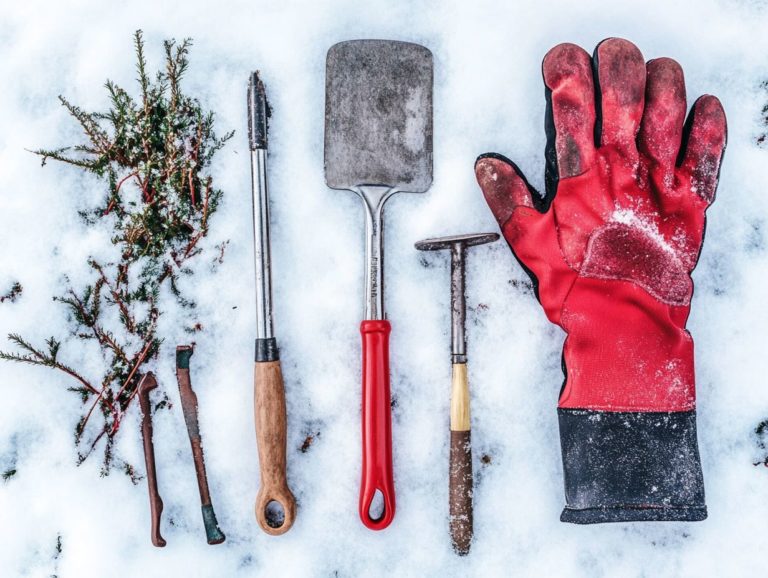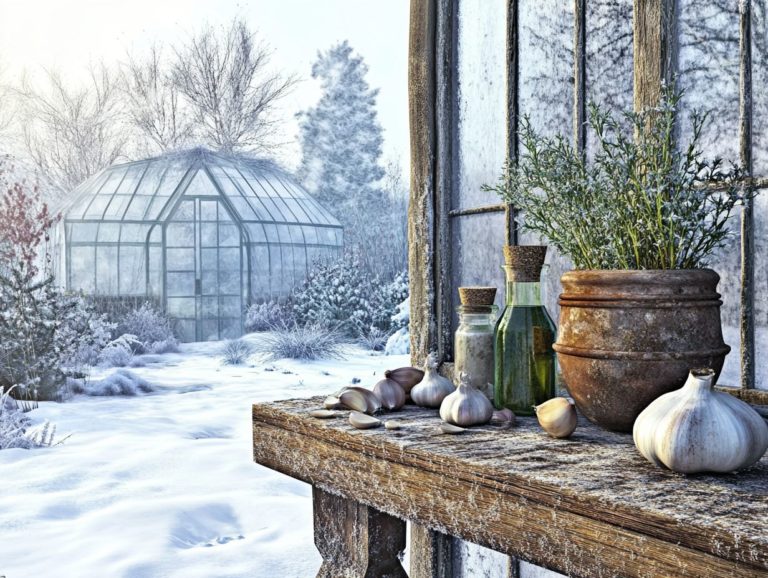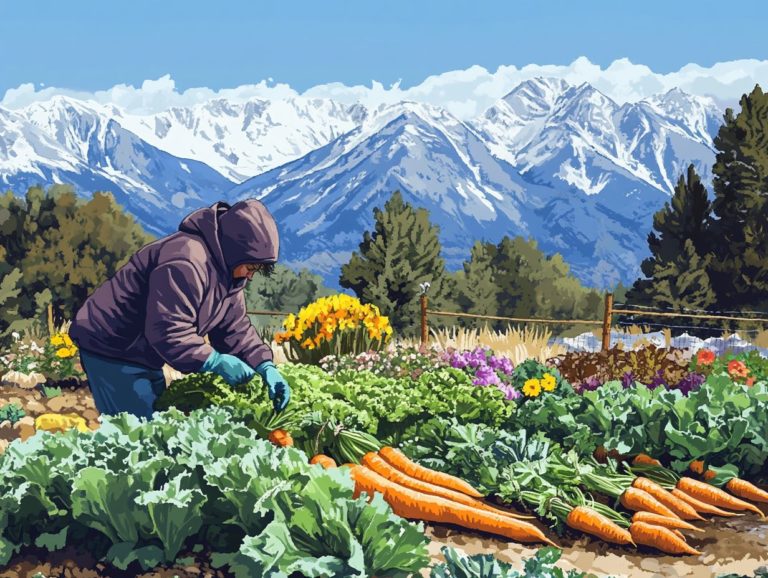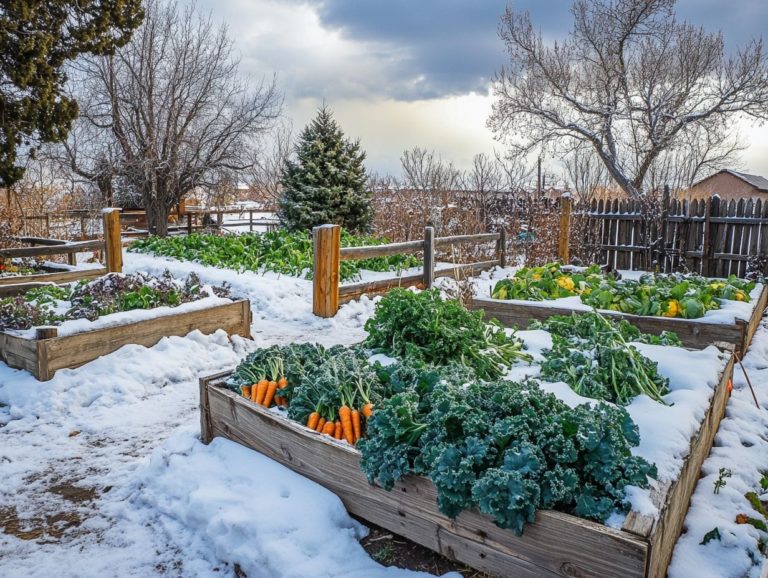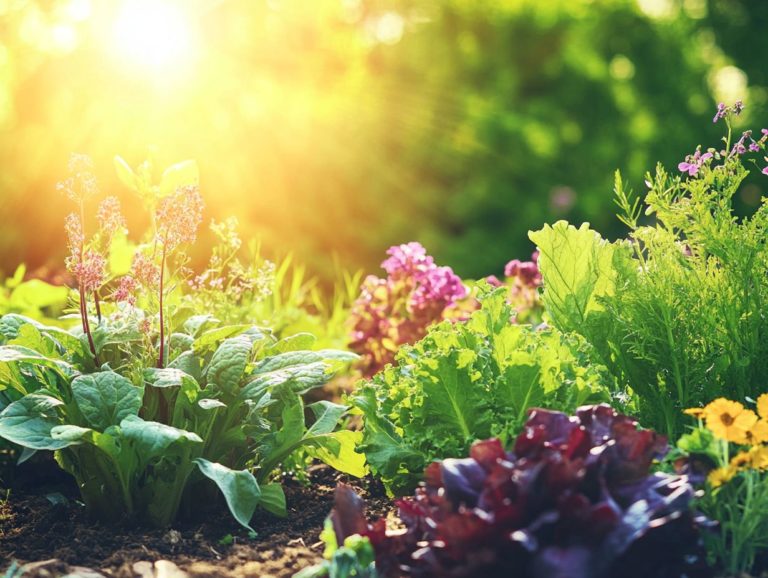What are the Best Sources for Cold-Climate Seeds?
Growing a thriving garden in colder climates presents unique challenges, yet selecting the right seeds can transform your efforts into a flourishing oasis!
Cold-climate seeds are carefully bred to thrive in cooler temperatures. They provide significant advantages for both you and the environment!
This article delves into the myriad benefits of these seeds, outlines crucial factors to consider for successful planting, and highlights the finest sources for acquiring them ranging from online retailers to local exchanges.
Whether you re a seasoned gardener or just starting, you ll discover valuable insights to ensure your garden thrives even in winter!
Contents
Key Takeaways:
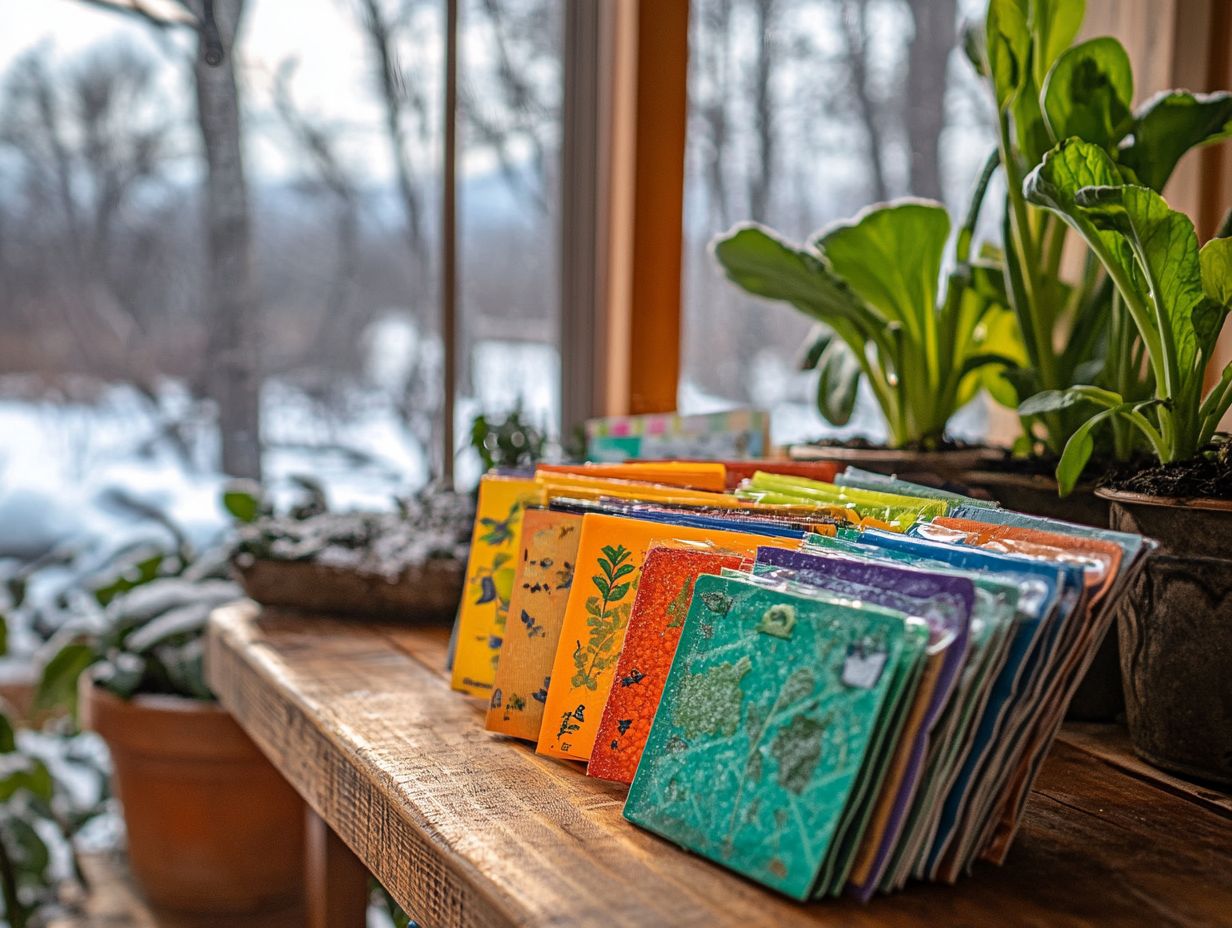
- Choose cold-climate seeds based on your climate and soil.
- Look for local seed exchanges and community gardens for seeds.
- Cold-climate seeds benefit both you and the environment!
What are Cold-Climate Seeds?
Cold-climate seeds are your ticket to thriving in cooler areas marked by chilly temperatures and shorter growing seasons. Think hardy annuals and cool-season crops like broccoli, cabbage, and kale these plants adapt well to tougher conditions.
To succeed in your home or indoor gardening endeavors, it s vital to understand the germination process, which is the way seeds start to grow. It s also important to consider seed dormancy, the period when seeds are inactive before they sprout. This knowledge gives you the power to make the most of seed trays or mini-greenhouses, ensuring optimal growth!
Alongside these popular choices, consider adding seeds like spinach, peas, and certain types of lettuce to your gardening repertoire. These cold-tolerant varieties are not just tough; they often develop richer flavors thanks to temperature shifts.
When selecting seeds, keep in mind the specific climate and soil type where you plan to plant. These elements play a significant role in influencing germination rates and the overall health of your plants. Thoughtful planning lets you enjoy a fruitful harvest, even amidst the challenges of colder environments.
Benefits of Growing Cold-Climate Seeds
Growing cold-climate seeds offers numerous benefits for gardeners and the environment, making it an enriching choice for home gardening enthusiasts and people who support eco-friendly farming.
These seeds are also tougher, requiring fewer resources than traditional gardening methods. This helps keep your gardening costs in check. Plus, by using organic seeds, you actively support biodiversity and promote environmental stewardship through effective gardening techniques that emulate natural conditions.
Advantages for Gardeners and the Environment
The benefits of growing cold-climate seeds extend beyond individual advantages; they play a crucial role in promoting environmental health and sustainability. By choosing organic seeds and adopting seed-saving practices, you can reduce reliance on chemicals and enhance biodiversity in your local ecosystem.
Implementing effective gardening techniques that utilize cold-climate seeds allows you to minimize water usage and improve soil health. This approach results in healthier, more resilient crops and fosters the establishment of beneficial insects and pollinators, contributing to a flourishing ecosystem!
By reducing your dependence on chemical fertilizers and embracing organic practices, you help ensure cleaner water sources and lower greenhouse gas emissions, supporting climate change mitigation efforts.
As you explore diverse planting options suited to colder climates, you actively engage in the conservation of genetic diversity among plants, essential for adapting to ever-changing environmental conditions. Ultimately, embracing cold-climate seeds aligns your gardening efforts with broader environmental goals, creating a win-win scenario for both you and the planet!
Factors to Consider When Choosing Cold-Climate Seeds
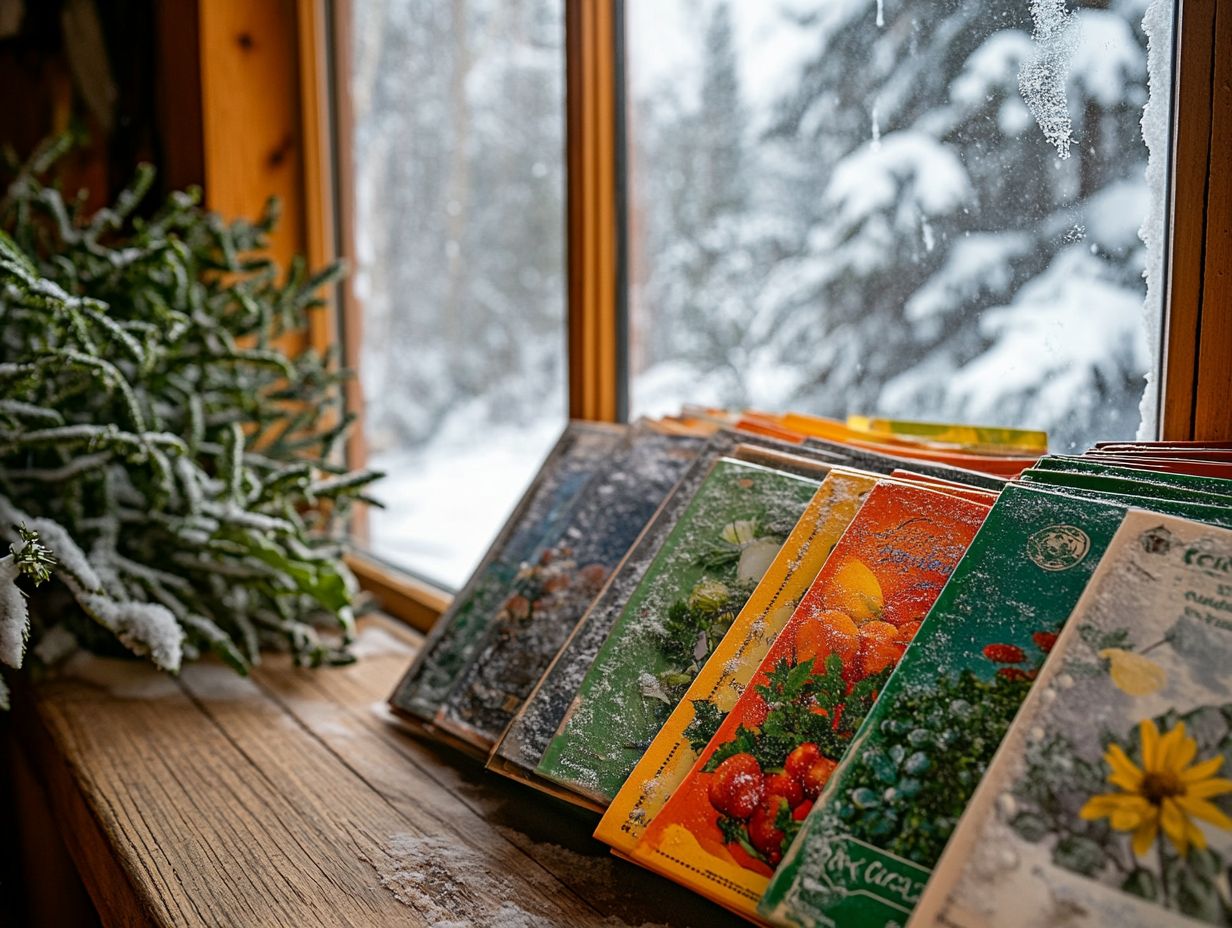
When selecting cold-climate seeds, consider key factors for optimal growth and yield. Understanding your temperature zone is crucial, as it informs which seed varieties will thrive in your specific climate.
Your choice of soil medium and its drainage capabilities is also vital. Proper gardening techniques for planting and nurturing seedlings significantly impact your gardening success.
Climate and Soil Requirements
Climate and soil needs are critical for cold-climate seeds to germinate and grow. Seeds like broccoli and kale thrive in well-draining soils that allow roots to develop without the threat of rot.
Monitor temperature fluctuations and the number of frost-free days for effective planting. These conditions are especially important when planting seeds directly in cooler months.
These crops flourish in well-aerated loamy soils rich in organic matter. Such soils meet nutritional needs while retaining moisture without becoming waterlogged.
As a cold-climate gardener, track weather patterns and choose planting dates that align with seasonal changes. This approach gives your seeds a robust start, increasing the chances of a bountiful harvest.
Seed Varieties and Availability
Choosing the right seed varieties is essential for your success in cold-climate gardening. Exciting options await you at reputable seed companies like Baker Creek Heirloom Seeds and Seed Savers Exchange, which offer diverse cold-climate seeds tailored for your needs.
These companies provide an impressive selection, from hearty root vegetables like carrots and turnips to leafy greens such as kale and spinach, all of which thrive even in cooler temperatures.
Local seed exchanges and community gardens can provide unique heirloom seeds. This enriches your gardening experience and fosters a sense of community.
If you re keen on embracing organic practices, prioritize non-GMO and sustainably sourced seeds to boost the overall health of your garden and soil.
Top Sources for Cold-Climate Seeds
Identifying reliable sources for cold-climate seeds is essential for cultivating a thriving garden, especially when considering seed companies that specialize in winter sowing.
You have a wealth of options, including reputable seed companies like Baker Creek Heirloom Seeds and Seed Savers Exchange, both of which specialize in diverse cold-climate seeds.
Local seed exchanges and community gardens can also provide unique heirloom seeds, enriching your gardening experience and ensuring a varied selection of plant varieties.
Online Retailers
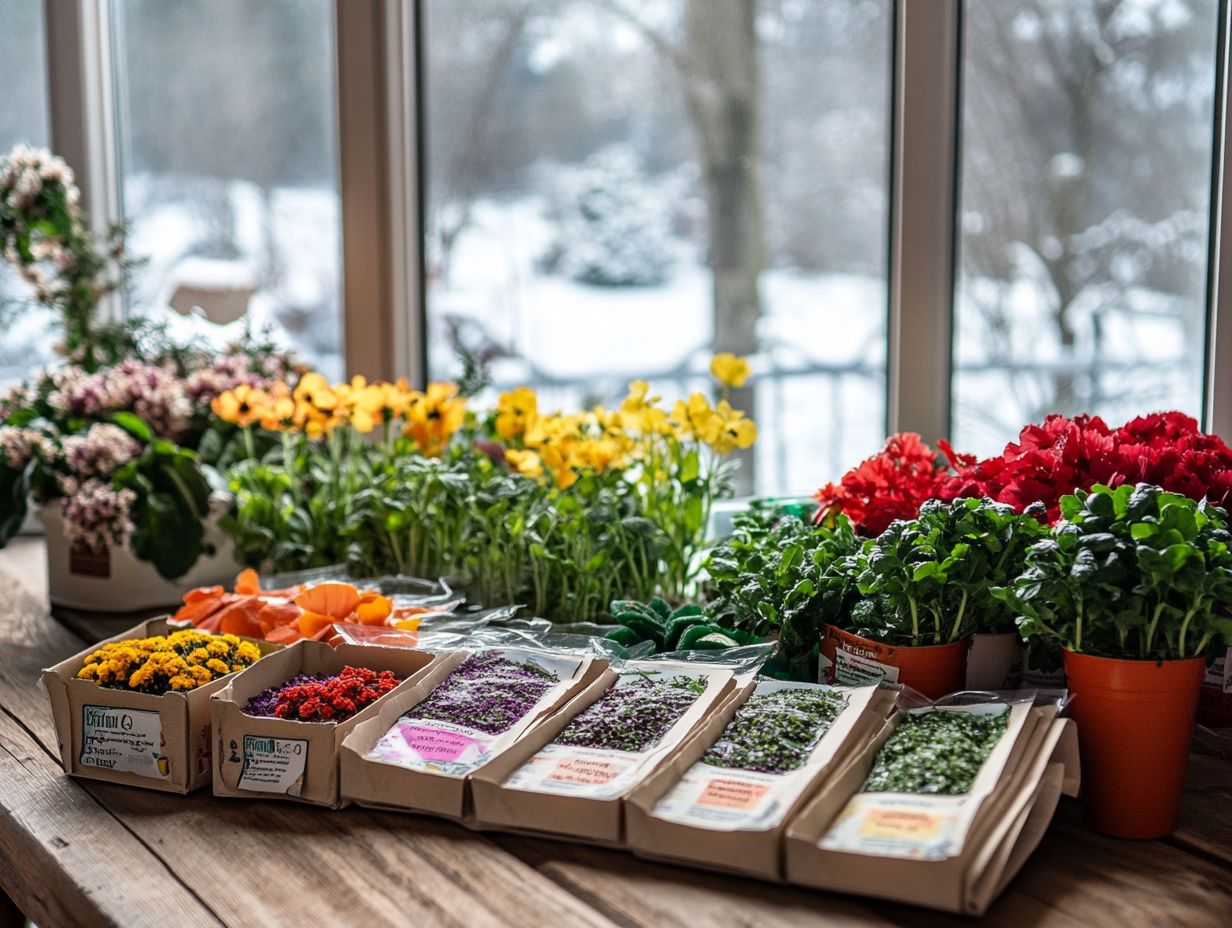
Online retailers offer a convenient selection of cold-climate seeds. They are perfect for gardeners of all skill levels.
Websites like Johnny’s Selected Seeds and Peaceful Valley Farm and Garden Supply have a wide range of organic and heirloom seeds tailored for various hardiness zones, ensuring you can easily find the perfect seeds for your gardening needs.
With just a few clicks, you can explore thousands of varieties without the constraints of local stores, all while benefiting from detailed descriptions and invaluable growing tips. Customer reviews on these platforms serve as a helpful guide, assisting you in making informed purchasing decisions and steering clear of common pitfalls, especially if you re new to gardening.
Retailers like Baker Creek Heirloom Seeds not only offer unique seed varieties but also cultivate a vibrant community centered around sustainable practices. The ability to shop year-round and compare different seed options truly makes online purchasing an intelligent choice for anyone serious about nurturing their garden, particularly in areas where cold-climate seeds are essential for thriving growth.
Local Seed Exchanges and Seed Libraries
Local seed exchanges and seed libraries are your go-to resources as a gardener, granting you access to a rich variety of cold-climate seeds, including those rare heirloom gems. These local programs help promote biodiversity and cultivate community engagement while fostering knowledge-sharing among local gardeners, ensuring that precious seeds thrive in their natural environments.
By connecting gardeners of all experience levels, these platforms encourage sharing growing techniques, personal stories, and tips that can truly elevate your gardening journey. They also help you reduce reliance on commercial seed sources, which often lean toward hybrid varieties at the expense of traditional breeds. This shift helps keep unique traits alive and lets you use sustainable gardening methods, contributing to healthier ecosystems.
Participating in local seed exchanges nurtures a sense of identity and belonging, as you and your community members come together to revive ancient agricultural wisdom. In doing so, you create a legacy of ecological stewardship that future generations can cherish and build upon.
Community Gardens and Farmers’ Markets
Community gardens and farmers’ markets offer much more than just fresh local produce they’re prime sources for cold-climate seeds, allowing you to connect with your community while securing top-notch seeds.
Join these lively spaces to connect with your neighbors and discover top-notch seeds! These venues often showcase unique varieties and local expertise, giving you the chance to learn effective gardening techniques and best practices for thriving in your hardiness zone.
By immersing yourself in these community-driven initiatives, you engage directly with local growers who specialize in plants perfectly suited to your climate. This exchange of knowledge enhances your gardening experience and cultivates a sense of belonging.
Don t miss out on the chance to learn from local experts and secure the best seeds for your garden! As the demand for sustainable options rises, these gardens and markets play a crucial role in bolstering local agriculture and food security, promoting the preservation of heirloom varieties that might otherwise fade away.
Ultimately, tapping into the wealth of resources at community gardens and farmers’ markets can lead to diverse, resilient food systems that benefit everyone involved.
Frequently Asked Questions
Curious about where to find the best cold-climate seeds?
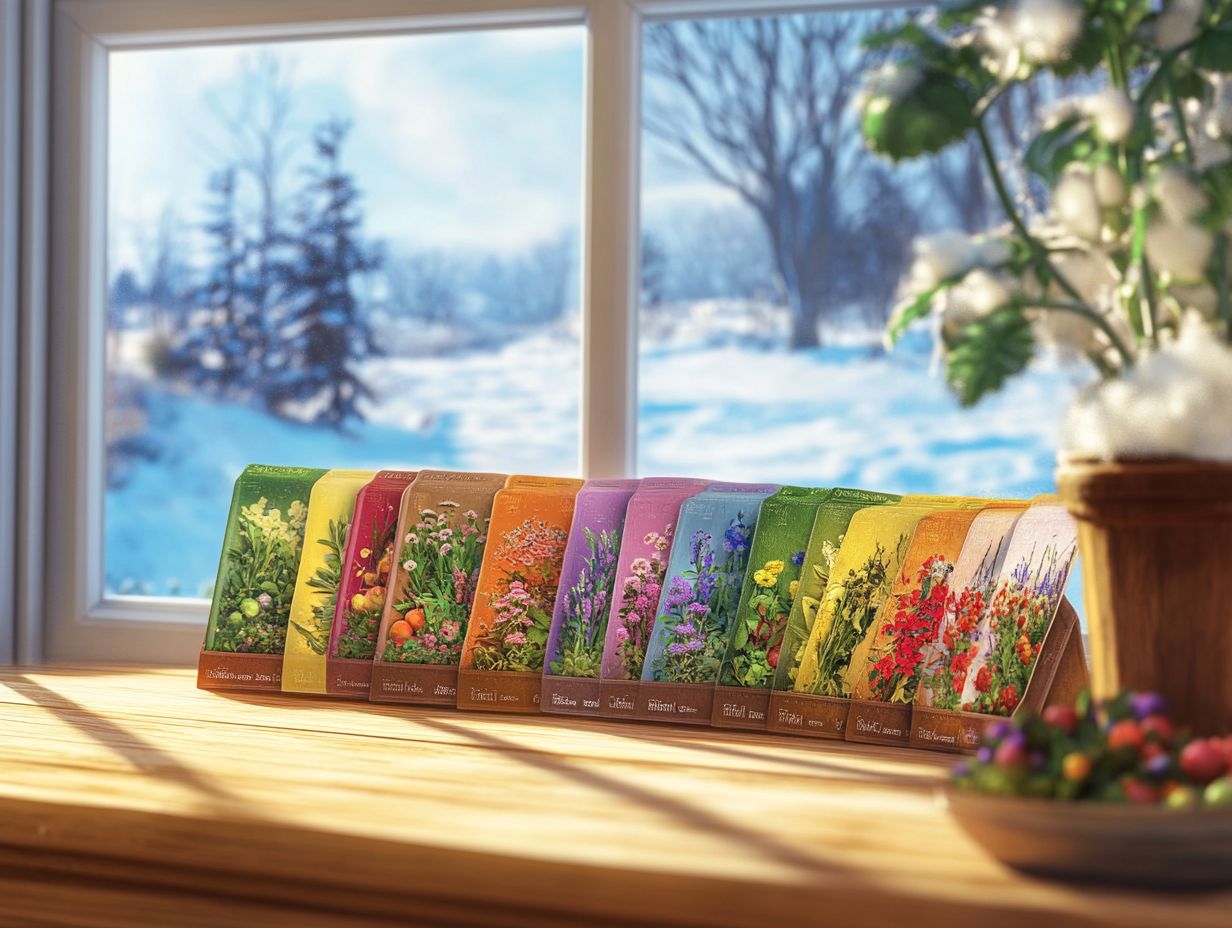
There are several great sources for cold-climate seeds, depending on your specific needs and preferences. Some of the best sources include online seed catalogs, local nurseries, specialty seed companies, and seed exchanges.
Are online seed catalogs a reliable source for cold-climate seeds?
Yes, online seed catalogs can be a great source for cold-climate seeds. Many reputable companies specialize in seeds that are specifically suited for colder climates, and they often have detailed information and customer reviews to help you make informed decisions.
Can I find cold-climate seeds at my local nursery?
You may find cold-climate seeds at your local nursery. However, this depends on your location and climate.
Some nurseries have a limited selection, so it’s wise to call ahead or check their website to see what they offer.
What is a specialty seed company?
A specialty seed company sells specific types of seeds. These companies often provide a broader selection of cold-climate seeds and personalized advice for growing in colder areas.
What is a seed exchange?
A seed exchange is a program where people can trade or share seeds. It’s a fantastic way to obtain unique, locally adapted cold-climate seeds while connecting with other gardeners!
Are there any other sources for cold-climate seeds?
Yes, seed banks, government agencies, and university extension programs are additional sources. Research their guidelines to see if they meet your needs!

